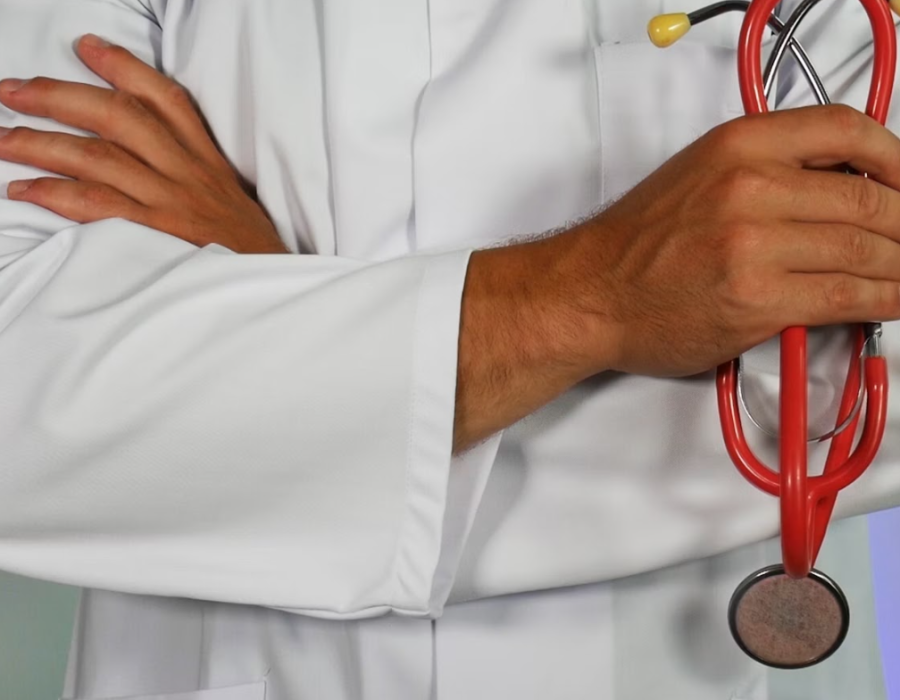Venous problems can cause major consequences and should be addressed by a specialist. That is why it is critical to seek the guidance and treatment of a vein doctor, if you see any indications of trouble. Continue reading to discover more about things to look out for.
8 Signs You Might Need to See a Vein Specialist
1. Pain or swelling in one leg but not the other
While pain and inflammation are often associated with muscle or joint injuries, they can also indicate circulatory or venous problems. When you feel discomfort, swelling, or fluid retention in one leg but not the other, it may be an indication of poor circulation in that leg and should be evaluated by a vein expert.
2. There are noticeably raised and discolored veins under the skin
Veins that show as red, blue, or purple lines on your skin may indicate a problem. Although many individuals believe spider or varicose veins are just decorative, they can create difficulties or indicate other venous issues. It is better to get them looked at. Larger varicose veins, in particular, can cause irritation, dryness, and a burning feeling.
3. Your legs feel heavy or weak at the end of the day
Most people's legs should not feel heavy, weak, or fatigued after standing for a lengthy amount of time. If this occurs on a frequent basis, consult a professional to evaluate whether there is a blockage or another problem with your leg' veins.
4. You had vein problems during an earlier pregnancy
Pregnancy puts a load on the vascular system. Blood pressure rises, putting additional stress on weak vein walls. Hemorrhoids, a kind of varicose vein, are frequent during pregnancy as a result of several circumstances.
If you experienced venous problems in a previous pregnancy, talking to someone ahead of time may help you prevent them during this one. After all, this should be a happy period in your life, not one fraught with stress or agony from venous diseases.
5. You get persistent leg pain
A variety of causes can contribute to persistent discomfort. You might have arthritis, muscular strain, or shin splints, for example. However, chronic discomfort that does not go away and has no clear reason may indicate vein problems.
6. Dry, itchy spots around your feet or ankles
Any disturbance to your legs' vascular system might result in dry, itchy skin. This is especially frequent around the ankles or around the feet since blood must travel the farthest to reach your extremities.
To observe whether it resolves, apply a moisturizer and avoid bathing your feet in hot water. If not, consult a physician to check if it is indicative of something more serious.
7. You have a family history of vein disease
There is a substantial hereditary relationship to vein disease. If you have a troubled family history, taking preventative measures might be beneficial. Consult a vein expert for an accurate assessment of your risks and what lifestyle modifications you may implement to reduce them.
8. You have sores on your legs that are not healing
This is typically connected with diabetes, although persistent leg sores can also indicate poor circulation. A vein expert can do diagnostic tests to establish whether a vein is causing the problem.
What Can A Specialist Do?
Vein experts are educated to detect the signs of venous diseases and circulation issues. They can assist in discovering the cause of your symptoms by doing a thorough physical examination, as well as a range of diagnostic screens and tests.
For certain patients, lifestyle changes may be advised. These may include elevating your legs, increasing moderate-intensity activity, and taking efforts to lower your blood pressure. Compression stockings are generally an effective treatment for moderate pain and edema caused by leg vein problems.
Sclerotherapy is a tried-and-true treatment that can be safely administered to most patients. It helps to cure spider and varicose veins. Radiofrequency ablation produces heat, which causes veins to scar and disappear. Phlebectomy is the surgical removal of diseased venous portions using tiny incisions.






Comments